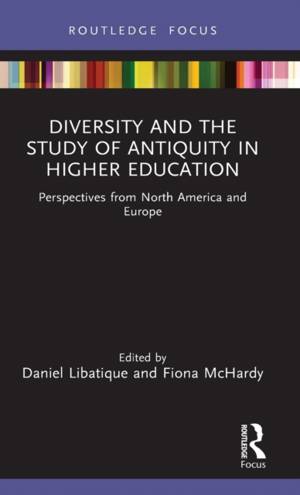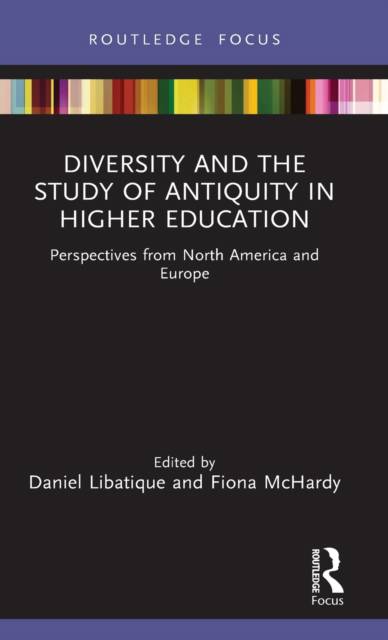
- Afhalen na 1 uur in een winkel met voorraad
- Gratis thuislevering in België vanaf € 30
- Ruim aanbod met 7 miljoen producten
- Afhalen na 1 uur in een winkel met voorraad
- Gratis thuislevering in België vanaf € 30
- Ruim aanbod met 7 miljoen producten
Diversity and the Study of Antiquity in Higher Education
Perspectives from North America and Europe
Omschrijving
This volume explores how the study of antiquity can be made relevant and inclusive for a diverse range of 21st century students by bringing together perspectives from colleagues working in higher education at different career stages, roles, and from different backgrounds in the US, UK, and Greece.
This collection of chapters addresses issues related to inclusive practice and diversity in Classics Higher Education, especially in the US and the UK. Recent debates within the discipline have highlighted inequality of access to traditional classical education, and a growing number of initiatives and projects have begun to address the range of sources and topics that form part of a modern classical education. The discipline is wide-ranging, including study of ancient Greek and Latin language and literature (the traditional core of Classics), as well as opportunities to study the ancient history, philosophy, religion, mythology, material culture and archaeology of the Greco-Roman period. Significant progress has been made over recent years in incorporating the study of gender and sexuality within classical degree programmes, and increasingly programmes are being enriched through broadening the geographical reach of topics on the curriculum beyond Europe. More care is also being taken over selection of scholarly reading to represent more fully the range of voices contributing to the discipline. But more work remains to be done.
Diversity and the Study of Antiquity in Higher Education
is of interest to anyone teaching Classics, especially in the US and UK, as well as scholars and researchers in the field who are interested in issues of diversity.Specificaties
Betrokkenen
- Uitgeverij:
Inhoud
- Aantal bladzijden:
- 144
- Taal:
- Engels
- Reeks:
Eigenschappen
- Productcode (EAN):
- 9781032235127
- Verschijningsdatum:
- 12/04/2023
- Uitvoering:
- Hardcover
- Formaat:
- Genaaid
- Afmetingen:
- 140 mm x 216 mm
- Gewicht:
- 326 g

Alleen bij Standaard Boekhandel
Beoordelingen
We publiceren alleen reviews die voldoen aan de voorwaarden voor reviews. Bekijk onze voorwaarden voor reviews.










